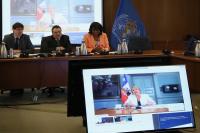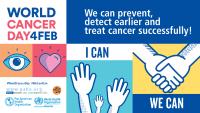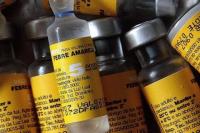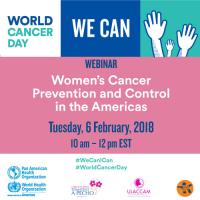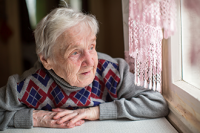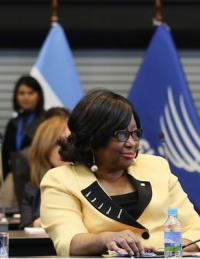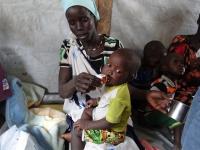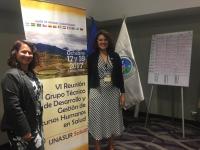You are here
News
-
02/07/2018 - Chile's President Michelle Bachelet will chair a high-level commission convened by the Pan American Health Organization (PAHO) to propose solutions that will expand access and health coverage in the Americas by 2030, "without leaving anyone back".
-
02/04/2018 - World Cancer Day 2018: together we can prevent, detect earlier and treat cancer successfully.
-
02/02/2018 - Information about Yellow Fever: key facts and vaccination
-
01/31/2018 - On February 6, Opas conducts webinar on cancer prevention and control in the Americas.
-
01/11/2018 - UN Environment and WHO have agreed a new, wide-ranging collaboration to accelerate action to curb environmental health risks that cause an estimated 12.6 million deaths a year. Yesterday (01/10/2018), Mr Erik Solheim, head of UN Environment, and Dr Tedros Adhanom Ghebreyesus, Director-General of WHO, signed an agreement to step up joint actions to combat air pollution, climate change and antimicrobial resistance, as well as improve coordination on waste and chemicals management, water quality, and food and nutrition issues. The collaboration also includes joint management of the BreatheLife advocacy campaign to reduce air pollution for multiple climate, environment and health benefits.
-
12/19/2017 - As the global population ages, the number of people living with dementia is expected to triple from 50 million to 152 million by 2050.
-
12/14/2017 - Expanding access and health coverage to the entire population will improve health and development, said Pan American Health Organization Director Carissa F. Etienne at the opening of a regional meeting today on universal health coverage. On December 11 and 12, some 200 political leaders, representatives of civil society and experts from 30 countries of the Americas are participating in the high-level regional meeting in Quito on universal health. It was organized by PAHO in collaboration with the Government of Ecuador.
-
11/27/2017 - This 3-hour self-paced course covers the causes and effect of Climate Change. It describes the mechanisms established by the UN Framework Convention on Climate Change and explains the key provisions and commitments established by the Kyoto Protocol and the Paris Agreement. All stakeholders interested to learn about the framework in the fight against climate change can benefit from the course. Prior knowledge is not a requirement for participation and the contents are presented on a progressive manner, from generic to specific elements.
-
11/21/2017 - A newly released nutrition report by the World Health Organization (WHO) Regional Office for Africa has revealed that undernutrition is still persistent in the region and the number of stunted children has increased. The Africa Nutrition Report, launched today in Abidjan, Ivory Coast also indicates that a growing number of children under five years old are overweight. Critical gaps in data also a concern.
-
11/14/2017 - Representatives from the Executive Secretariat of the International Network for Health Technicians Education (RETS, from Rede Internacional de Educação de Técnicos em Saúde), which is located at Joaquim Venâncio Polytechnic Health School (EPSJV/FIOCRUZ, from Portuguese Escola Politécnica de Saúde Joaquim Venâncio), took part in the VI Meeting of the Union of South American Nation’s (UNASUR) Technical Group for the Development and Management of Human Resources for Health (GTRHUS) on October 17th and 18th. The meeting took place in Lima, Peru, and had the goal of establishing the guidelines for UNASUR’s Human Resources (HR) for Health Policy, which will guide the development and strengthening of the HR management among its member states. Promoted by the GT, the event was attended by representatives from the ministries of Health of Brazil, Argentina, Colombia, Chile, Ecuador, Guyana, Peru, Uruguay and Venezuela, as well as delegations from the South American Network of Public Health Schools (RESP/UNASUR) (RESP-UNASUR), the South American Institute of Government in Health (ISAGS), and the Pan American Health Organization (PAHO/WHO).

